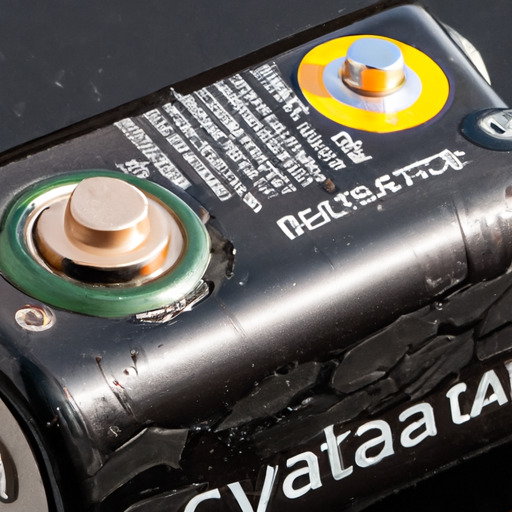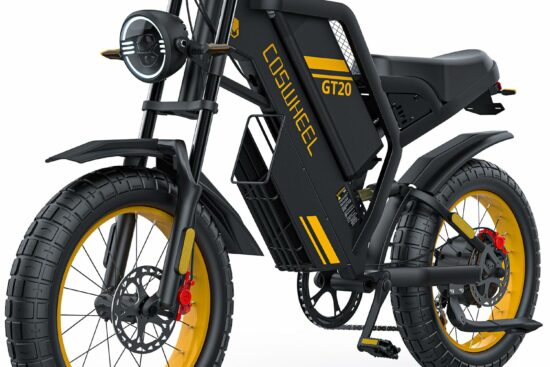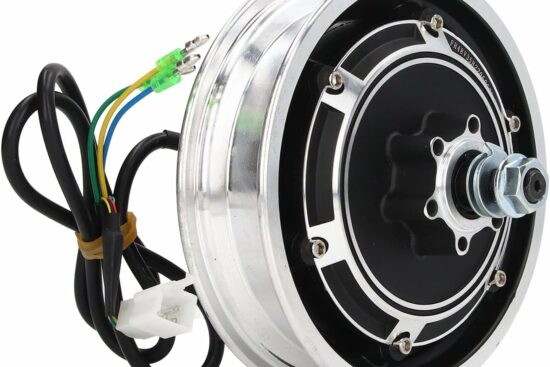
Have you ever wondered what to do with your old e-bike battery once it’s no longer usable? It can be a bit confusing trying to figure out the proper way to dispose of it. You don’t want to just toss it in the trash, as it can be harmful to the environment. In an upcoming article, we’ll explore different options for disposing of your old e-bike battery in a safe and responsible manner. Whether it’s recycling, reusing, or finding a disposal center, we’ve got you covered. Stay tuned to learn more about how you can properly dispose of an old e-bike battery and do your part in protecting the planet.
Understanding the Importance of Properly Disposing E-bike Batteries
When it comes to getting rid of your old e-bike battery, it’s crucial to understand the importance of proper disposal. Many people are unaware of the environmental impact and legal concerns associated with improper battery disposal. By disposing of your e-bike battery properly, you can reduce environmental pollution and promote safety in your community.
The Environmental Impact of Improper Battery Disposal
Improperly disposing of e-bike batteries can have severe environmental consequences. E-bike batteries typically contain chemicals and heavy metals that can be harmful to the environment when released improperly. These substances can lead to soil and water contamination, posing a risk to plants, animals, and even human health.
When batteries end up in landfills, the toxic materials within them can seep into the soil and eventually contaminate groundwater. This contamination can persist for many years and affect the ecosystem in multiple ways. Additionally, improperly disposing of e-bike batteries releases greenhouse gases into the atmosphere, contributing to climate change.
Legal and Safety Concerns with Improper Disposal
Improperly disposing of e-bike batteries can also lead to legal and safety concerns. In many jurisdictions, it is illegal to throw away batteries in regular trash bins due to their hazardous nature. Violating these regulations can result in fines or other penalties.
Furthermore, improperly stored or discarded batteries can pose safety risks. Batteries can be a fire hazard if they are damaged or exposed to extreme heat. If not handled properly, they can leak hazardous chemicals or even explode, causing harm to individuals and property.
To avoid these environmental, legal, and safety issues, it’s important to understand the proper methods of disposing of e-bike batteries.
Identifying Different Types of E-bike Batteries
Before you dispose of your e-bike battery, it’s essential to identify its type. Different types of e-bike batteries require specific disposal methods to minimize their environmental impact.
Lithium-ion Batteries
Lithium-ion batteries are the most common type used in e-bikes due to their high energy density and longer lifespan. These batteries are rechargeable and provide a significant amount of power. When disposing of lithium-ion batteries, it’s important to handle them with care and follow specific guidelines.
Lead-Acid Batteries
Lead-acid batteries are another type commonly used in e-bikes. These batteries are heavy and contain lead and sulfuric acid. Proper disposal of lead-acid batteries is crucial to prevent these toxic substances from polluting the environment.
Nickel-Cadmium Batteries
Nickel-cadmium (NiCd) batteries were previously popular but have been phased out due to their toxic and hazardous nature. NiCd batteries contain cadmium, which is harmful to human health and the environment. Proper disposal of NiCd batteries is essential to prevent the release of cadmium.
Nickel-Metal Hydride Batteries
Nickel-metal hydride (NiMH) batteries are less common in e-bikes but still require proper disposal. These batteries do not contain toxic substances like cadmium but should still be recycled or disposed of safely.

Researching Local Battery Disposal Regulations
To ensure you properly dispose of your e-bike battery, it’s important to research and understand the battery disposal regulations specific to your locality. Here are some steps you can take to ensure compliance:
Contacting Local Waste Management Authorities
Contact your local waste management authorities or environmental agencies to inquire about the proper disposal methods for e-bike batteries. They can provide you with specific guidance on safe disposal practices and any regulations that apply in your area.
Checking for Disposal Programs or Facilities
Check if there are any battery disposal programs or facilities in your community. Some regions have dedicated centers that accept and recycle batteries, including e-bike batteries. These facilities often have proper infrastructure for handling and recycling batteries responsibly.
Understanding Battery Recycling Laws
Familiarize yourself with the battery recycling laws in your jurisdiction. Some areas have specific laws in place that mandate the recycling of certain types of batteries, including e-bike batteries. By understanding these laws, you can ensure you are complying with the regulations and doing your part to protect the environment.
Safe Battery Handling and Preparation for Disposal
Before disposing of your e-bike battery, it’s essential to follow safety guidelines to ensure your well-being and prevent any incidents.
Ensuring Personal Safety with Protective Gear
When handling e-bike batteries, it’s important to prioritize personal safety. Wear appropriate protective gear such as gloves and safety glasses to protect your skin and eyes from potential exposure to chemicals or sharp edges.
Removing the Battery from the E-bike
Before disposing of your e-bike battery, remove it from the e-bike itself. Follow the manufacturer’s instructions or consult a professional if you are unsure about the proper removal process. Make sure the battery is completely disconnected from the e-bike to prevent any accidental activation.
Disconnecting or Isolating Battery Terminals
Ensure that the battery terminals are disconnected or properly isolated to prevent any short-circuits or accidental contact. Tape or cover the terminals with insulating material to minimize the risk of electrical discharge.
Draining the Battery Safely
Some battery types may require draining before disposal to reduce the risk of leakage. Follow the manufacturer’s guidelines or seek advice from professionals on how to drain the battery safely. If you are unable to drain the battery yourself, consult a local disposal facility for assistance.

Options for Recycling or Disposing of E-bike Batteries
Once you have prepared your e-bike battery for disposal, you have several options for appropriately managing its waste.
Battery Manufacturer Take-Back Programs
Many battery manufacturers have take-back programs in place to ensure the responsible disposal and recycling of their products. Contact the manufacturer of your e-bike battery to inquire about their take-back program and how you can participate.
Local Electronics Recycling Centers
Local electronics recycling centers often accept e-bike batteries for proper disposal. These facilities have the necessary infrastructure to handle and recycle batteries safely. Research the recycling centers in your area and find out if they accept e-bike batteries.
Battery Recycling Collection Events
Keep an eye out for battery recycling collection events organized by your local community or environmental organizations. These events provide a convenient way to dispose of your e-bike battery responsibly. Check with local authorities or organizations to find out when and where these events take place.
Reusing or Repurposing Old E-bike Batteries
In some cases, your old e-bike battery may still have some useful life or potential for repurposing. Instead of disposing of it immediately, consider exploring alternative uses.
Electronics and DIY Projects
Old e-bike batteries can be repurposed for various electronics or DIY projects. They can be used to power small devices such as LED lights, portable radios, or even as backup power during emergencies. If you have the technical know-how, there are endless possibilities for reusing e-bike batteries in creative ways.
Powering Low-power Devices or Lighting
Another option is to use old e-bike batteries to power low-power devices or lighting in your home or outdoor spaces. With the help of a voltage converter or an appropriate power management system, you can utilize the remaining energy in the battery for practical purposes.
Donating or Selling Old E-bike Batteries
If your old e-bike battery is still in good condition, you may consider donating or selling it to those in need.
Checking with Local E-bike Shops or Repair Centers
Contact local e-bike shops or repair centers to inquire if they accept used e-bike batteries for resale or refurbishment. Some customers may be looking for affordable battery replacements, and your old battery could be a suitable option.
Online Marketplaces for Used Batteries
Explore online marketplaces dedicated to buying and selling used items. You may find individuals interested in purchasing your old e-bike battery for their own e-bikes or DIY projects. Make sure to provide accurate information about the battery’s condition and remaining capacity.
Educating Others on Proper Battery Disposal
Promoting proper battery disposal goes beyond our own actions. Educating others in our communities is vital to creating a more environmentally conscious society.
Sharing Disposal Guidelines on Social Media
Spread awareness by sharing battery disposal guidelines on your social media platforms. Highlight the environmental impact of improper disposal and provide tips for responsible battery disposal. Encourage your friends and followers to follow these guidelines and share the information with their own networks.
Organizing Community Awareness Campaigns
Consider organizing community awareness campaigns on proper e-bike battery disposal. Collaborate with local environmental organizations, schools, and community centers to host events or workshops. Provide educational materials, demonstrations, and resources for proper battery disposal. By working together, you can make a significant impact in your community.
Conclusion
Disposing of your old e-bike battery responsibly is not only important for the environment but also for legal and safety reasons. By understanding the different types of e-bike batteries, researching local battery disposal regulations, and following the necessary safety measures, you can ensure proper disposal. Additionally, exploring options for recycling, reusing, donating, or selling old e-bike batteries can further minimize the environmental impact. By educating others and promoting responsible battery disposal, you can play a significant role in reducing pollution and creating a safer community. Take the responsibility to properly dispose of your e-bike batteries and contribute to a greener future




















